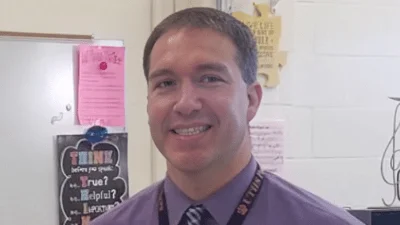Augustana College Board of Trustees recently issued the following announcement.
Dr. David Walton ’98 knows what needs to be done. He worked in Haiti during the 2010 cholera outbreak and in Sierra Leone during the 2014 Ebola virus epidemic. Today he is in Boston caring for COVID-19 patients at Brigham and Women’s Hospital.
“As a clinician, I understand the risks, and I’m comfortable with them,” he said. “I’ve raised my hand to do more.
Dr. Walton, an associate physician in the hospital’s division of global health equity, estimates Boston is a week behind what’s happening in New York City. He doesn’t anticipate Boston will be hit as hard because it’s not as densely populated, but the days ahead will continue to be challenging.
Before the COVID-19 pandemic, Dr. Walton divided his time between Brigham, a major teaching hospital of Harvard Medical School, and his work/travel for Build Health International (BHI). He co-founded the non-profit to serve the needs of the poor by building high-quality health-care infrastructure. BHI has built 150 projects in 20 countries since 2014, including a 350-bed teaching hospital in central Haiti.
Worldwide travel bans are keeping Dr. Walton in Boston, so he’s working virtually with BHI teams to mitigate the impact of COVID-19 in Haiti, Latin America and Africa. This includes developing designs for separate treatment centers and protocols to protect patients and staff.
“When an easily transmissible infectious disease hits a country with a weak health care system and a dearth of resources, it’s like dropping gasoline on a pile of kindling,” he said. “It will spread quickly. It will be catastrophic.”
David Walton in field in Haiti (2007 photo)
Dr. David Walton ’98 in Haiti (2007 photo)
Haiti, for example, has only approximately 10 Level-3 ICU beds for 10 million people, he said.
Dr. Walton knows firsthand Haiti’s long struggle with poverty and limited-resource health care. He has traveled to the Caribbean country each of the last 22 years to treat patients with no access to health care—beginning in the rural AIDS clinics with Partners In Health, a Harvard-affiliated organization focused on lessening health disparities.
He has received numerous awards for his work in Haiti and around the world, including the Jimmy and Rosalynn Carter Humanitarian Award in 2014. Recognized for his tireless work ethic and leadership and “bringing hope to areas where it was lost,” Dr. Walton began to shape this vision for his life’s work as an undergrad.
It was the summer after his first year at Augustana. Walton studied abroad in Cuenca, Ecuador, where he was struck by the discrimination indigenous people suffered at the hands of the majority, particularly in regard to access to health care.
During the fall of his senior year, he visited La Paz, Bolivia, on Augustana’s Latin American term. Again, he was moved by the lack of health care for the poor. He wrote his senior thesis about his experience in La Paz, which he calls an epiphany, as he began thinking about health care as a fundamental human right.
“That was a pivotal experience that made me ask, ‘What can I do?’” he said. “It clearly relates to how I ended up where I am.”
After obtaining an M.D. from Harvard Medical School and an M.P.H. from the Harvard School of Public Health, Dr. Walton trained in internal medicine at Brigham and Women’s Hospital. He was the first Doris and Howard Hiatt Global Health Equity resident.
“For me, I’m coming at COVID-19 from a global perspective,” Dr. Walton said. “It isn’t isolated to us. We need to focus on our family and our neighbors, yes, but if we only do that, we won’t win this challenge. It’s critical that we act in solidarity and help our brothers and sisters around the world.”
Original source can be found here.



 Alerts Sign-up
Alerts Sign-up